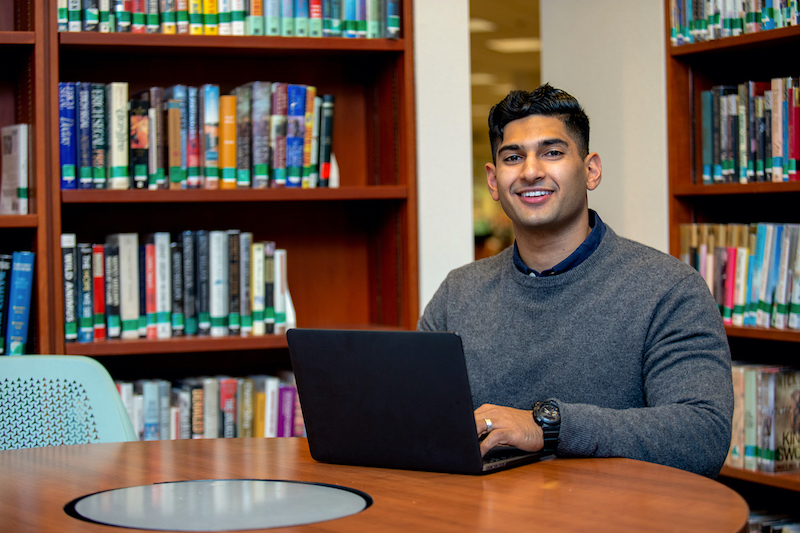
Psy.D. Student Focuses on Helping Trauma Survivors
As a young adult, Sam Alex started to notice a trend: some of his close friends disclosed histories of being sexually abused. He listened and pointed them to some therapists for professional help.
After a fourth friend came to him with a story of abuse, he reflected on what this meant. “There must be something about me that makes people feel comfortable enough to share this,” Alex realized. “I want to be able to care for them well.” He initially wanted to help people by going into sports medicine, but he decided to change course and pursue a career as a clinical psychologist.
Alex earned a master’s degree in counseling and did not have plans to continue his education until he talked with a professor who had earned his Psy.D. from Immaculata. A doctoral degree qualifies psychologists to provide not just therapy but also administer assessments, Alex’s professor explained. “I went home that night and signed up for the GRE immediately so that I could apply to Immaculata,” Alex said. He expects to graduate from the Psy.D. program in 2023. “I want to be able to work on the ground level, providing therapy and assessments to those who have suffered trauma, do research and teach, so that I can help to train the next generation of therapists and psychologists and counselors.”
As part of his own training, Alex has studied adverse childhood experiences (ACEs), such as abuse, neglect, violence, substance use, having incarcerated family members, discrimination, bullying and living in unsafe neighborhoods. Research has shown that the more adverse experiences people have in childhood, the more at risk they are for substance abuse, depression, suicide attempts, and learning and behavior problems. Also prevalent are physical health issues such as obesity, heart disease and cancer.
“It can be argued that nurturing relationships are the leading intervention to help relieve the impact of toxic stress as a result of multiple ACEs,” Alex wrote in a paper about childhood adversity. In a practicum completed at Children’s Hospital of Philadelphia, he helped form a group for low-income parents to educate them about how their own traumatic experiences can affect their parenting— with the goal of breaking the cycle of trauma.
Alex is providing therapy for trauma and abuse survivors as part of another practicum, and he incorporates insights from interpersonal neurobiology into his work. Janet Etzi, Psy.D., one of Alex’s psychology professors, introduced him to the discipline that focuses on social connections as a key to well-being. These connections are often fostered through nonverbal signals, so Alex has learned to communicate empathy and safety for his clients through his facial expressions, body language and voice tone.
“There’s so much happening in the room in therapy that isn’t communicated verbally,” he observed. Trauma survivors often watch and interpret behavioral subtleties in the people around them, checking for signs of safety. To accommodate his clients, Alex tries to be especially mindful of his reactions and to work at their pace.
Caring for people in pain can be difficult, so Alex is grateful to have good supervisors who have helped him process the impact of his experiences. He has learned to give himself space to grieve for his clients and the abuse they have suffered.
“I have a lot of really helpful people around me who care for me,” Alex remarked, mentioning faculty and the good friends he has made in the Psy.D. program. The camaraderie he has built with his classmates extends outside of class, and that is one of the highlights of the program, he said.
Reflecting on how he has grown in the years since his friends disclosed their stories of abuse, Alex commented, “I can be helpful. I can do more now.” He appreciates how the Psy.D. program has given him tools to assess, diagnose and treat clients to help them process their trauma. “I really feel called to serve,” he said.